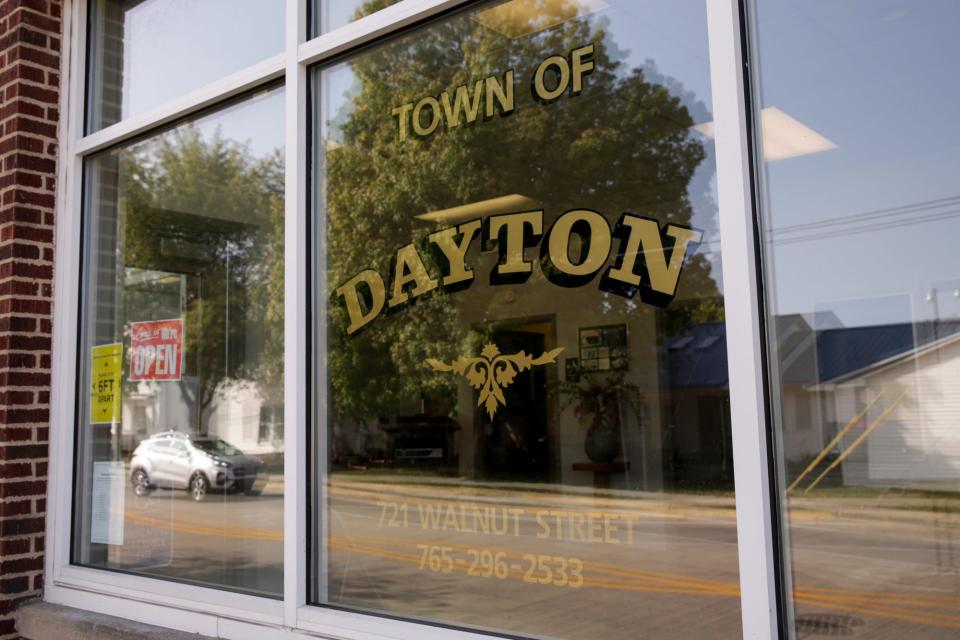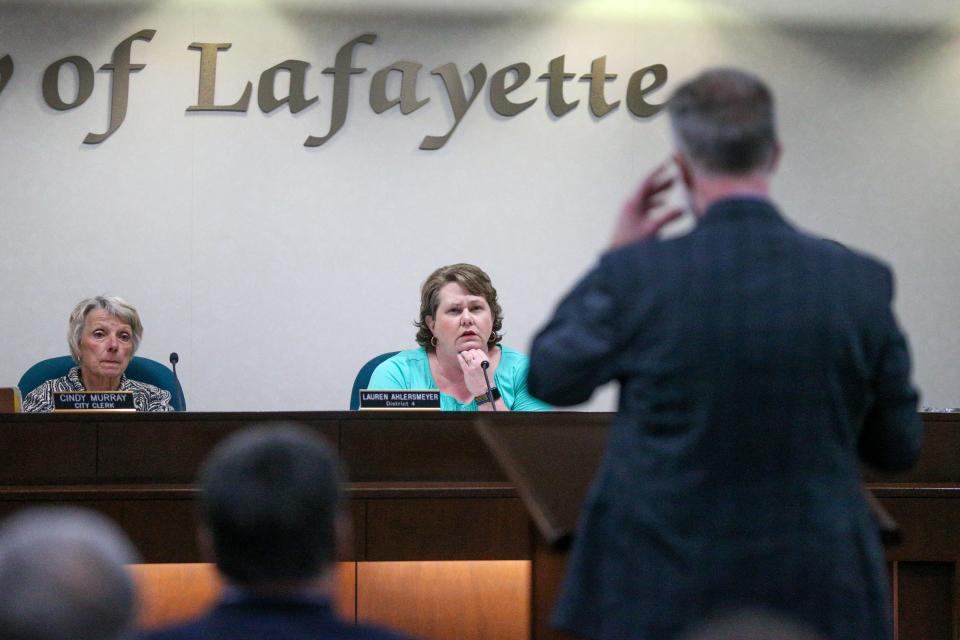Dayton files lawsuit against Lafayette over annexation of Carr property
LAFAYETTE, Ind. — The town of Dayton followed through with its threats of suing the city of Lafayette over the annexation of the Carr family property after it filed a lawsuit against the city on Friday.
The lawsuit complains that the city of Lafayette failed to annex the Carr property in a manner that followed Indiana law and that the city’s approval of the annexation breached its utility contracts with Dayton.
Due to these failures, the town of Dayton is asking the court to nullify the proposed annexation, declaring the annexation ordinance to be illegal, as well as award costs and fees from the court proceedings.

At the time of reporting, the Journal & Courier reached out to Lafayette Mayor Tony Roswarski regarding the lawsuit. He opted to not provide comment since he has yet to be serviced the lawsuit.
In July, the city of Lafayette officially approved the super-voluntary annexation that the Carr Family Farm II LLC filed with the city back in March.
The approval saw the incorporation of approximately 132 acres of Carr’s property, which sits along Interstate 65 and Haggerty Lane, into the city of Lafayette.
The approval did not go unopposed.
Since the ordinance first appeared on the city council’s agenda in March, the town of Dayton expressed their disapproval of the annexation claiming that the property was vital for Dayton’s future growth and that the town had made significant investment planning for future development of the property.
“The Town of Dayton made every effort to avoid litigation,” said Chris Wischer of Stoll Keenon Ogden PLLC, attorney for Dayton.

“The Lafayette City Council approved this annexation despite repeated objections raised by the Dayton Town Council and with complete disregard for the devastating impact the annexation will have on the Town and its future. The Town Council believes it has no choice except to seek intervention from the Court to protect Dayton’s interests and its future.”
The lawsuit outlines several reasons why the city of Lafayette may have allegedly annexed the Carr Property illegally.
The first complaint deals with how the Carr Family Farm II LLC filed for a super-voluntary annexation with the city.
The lawsuit claims that the Carr Family Farm II LLC failed to meet the petitions requirement for requesting an annexation. According to Indiana law, in order to voluntarily annex land, 100% of landowners within the territory being annexed must sign the request.
Dayton argued that the Carr Family Farm II LLC failed to receive 100% of signatures from affected owners.
“The State Property and its boundaries should not be considered for purposes of determining whether the Annexation Territory is contiguous to the City of Lafayette because the State of Indiana did not sign the Annexation Petition and because the State Property is not considered public highway or rights of way of public highway. The Annexation Territory, with or without consideration of the State Property, is not contiguous to the City of Lafayette as required by Ind. Code 36-4-3-1.5, Ind Code 36-4-3-13, and other applicable statutes,” the lawsuit reads.
Due to the alleged failure to receive a signature from the State of Indiana, Dayton claims that the annexation ordinance ought to be invalid and void since Lafayette’s failed to exercise its annexation power in the manner prescribed by statute as set forth herein.

The second claim presented in the lawsuit is that since the city of Lafayette approved the annexation of the Carr property, it ultimately breached the water and sewer service contracts that both cities agreed to back in December 1976, which was then revised in February 1995.
Within those contracts, it established Dayton’s area of jurisdiction for purposes of water and sewer service as, “the area bounded by County Road 200 South on the north to County Road 800 East and then south along the south fork of Wildcat Creek on the east to Wyandotte Road on the south and to Interstate 65 on the west,” according to the lawsuit.
Under Indiana law, an Indiana municipality has jurisdiction to regulate and provide sewer and water service outside of the municipal boundaries within four miles of its boundary.
The lawsuit highlights how Dayton owns land within one-half mile of the annexation territory, which would mean that the Carr property would still fall under Dayton’s area of jurisdiction.
Because of this, Dayton argued that the City of Lafayette's annexation of the Carr property overruled Dayton’s area of jurisdiction.
Although it should be noted that the Town of Dayton did not own any of the Carr property, rather the property existed within the unincorporated portion of Tippecanoe County.
As of now, a court hearing has been set for September 2023.
Noe Padilla is a reporter for the Journal & Courier. Email him at Npadilla@jconline.com and follow him on Twitter at 1NoePadilla.
This article originally appeared on Lafayette Journal & Courier: Dayton files lawsuit against Lafayette due to annexation approval

